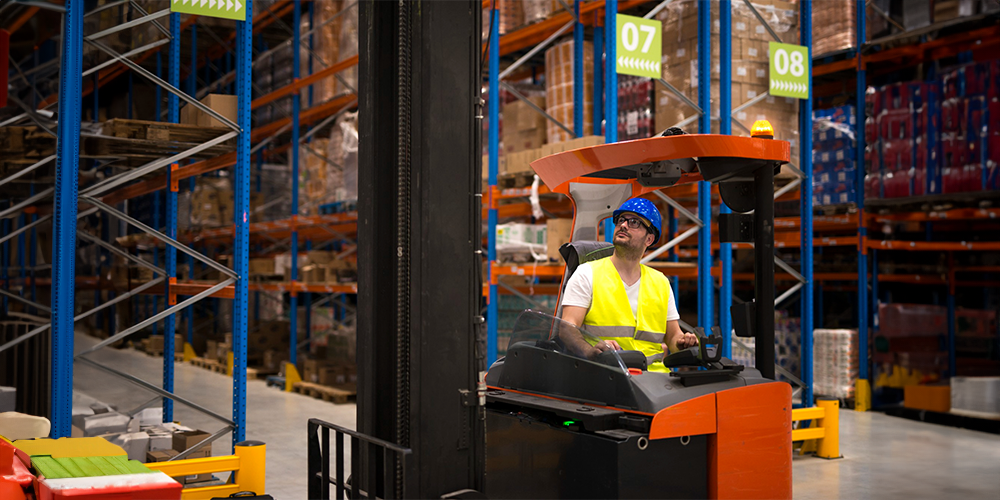Retail & Logistics Sector in India: A Growing Hub of Opportunities

The retail and logistics sector in India has witnessed remarkable growth in recent years, with an increasing demand for skilled professionals. This burgeoning industry encompasses various segments such as grocery, fashion/lifestyle, and electrical/electronics. Over the last four years, the sector has seen an impressive 50% growth, which has also translated into higher salaries for the workforce. Let’s delve into the driving factors behind this growth, the importance of world-class logistics hubs in India, and the types of jobs in demand.
Impressive Growth Projections:
The Indian retail sector is poised for substantial growth, with a projected compound annual growth rate (CAGR) of 19% over the next five years. Modern retail, which encompasses organised and technologically advanced retail formats, is expected to exhibit even more robust growth at 25%. It is predicted to cross the monumental $1 trillion mark by 2027, marking a significant milestone in India’s retail evolution.
The growth in the retail sector has not only been impressive in terms of business expansion but also in employment opportunities. Over the last four years, salaries in this sector have surged by 50%, making it an attractive career option.
A recent study conducted by JLL Research projects that India’s warehousing and Industrial sector will see a substantial increase in its total Grade A and B supply, reaching an estimated 516 million square feet by the year 2026. The research findings indicate that in the first half of 2023, an additional 15 million square feet of inventory was incorporated into India’s overall leasing stock, boosting it to a total of 344 million square feet. Notably, Delhi NCR, Mumbai, and Bengaluru played a significant role in this supply expansion.
In the leasing market of the top eight cities, third-party logistics operators constituted 43% of the demand, marking a significant rise from the 35% observed in H1 of 2022.
Growth Drivers for the Retail and Logistics Sector in India:
Several factors contribute to the growth of India’s retail and logistics sector, making it one of the most dynamic industries in the country.
- Production:
The retail sector has been bolstered by a combination of domestic and export-oriented production, driven by government initiatives like the Production-Linked Incentive (PLI) scheme. This has not only led to a rise in the variety and availability of products but also generated employment opportunities.
- Consumption:
Due to several factors, India’s retail and logistics sectors have been buoyed by increased consumption. Rising disposable incomes, falling inflation, and a surge in rural demand have created a conducive business environment. As more people access goods and services, the demand for retail and logistics professionals has increased significantly.
World-Class Logistics Hubs:
India is rapidly upgrading its logistics infrastructure for the modern retail sector with advanced, technology-driven logistics hubs featuring automation, AI/ML-based forecasting, and streamlined supply chain management. This transition reduces the reliance on an unskilled workforce, resulting in a more efficient workforce. Skilled professionals who can navigate the intersection of technology and logistics are in high demand to oversee these sophisticated facilities. Their expertise will play a critical role in optimising operations and meeting the evolving needs of the retail industry.
Retail & Logistics Jobs in Demand:
The growth of the retail and logistics sectors naturally results in an increased demand for skilled professionals to manage and streamline operations. Here are some profiles and jobs that will be in high demand in the coming years:
- Supply Chain Managers
Supply chain managers oversee the overall flow of goods, ensuring an efficient and cost-effective movement from production to the end consumer. Their role is crucial in maintaining a smooth supply chain.
- Logistics Experts:
Logistics professionals are responsible for planning and organising the movement of goods, optimising routes, and ensuring timely delivery.
- Distribution Specialists:
Distribution professionals focus on delivering products to customers most efficiently, ensuring customer satisfaction and cost-effectiveness.
- Warehousing Managers:
Warehousing managers oversee the storage of goods, ensuring that inventory is organised, safe, and readily available when needed.
The retail and logistics sector in India is projected to create around 10 million jobs in the next five years, offering many opportunities for skilled individuals.
Final Thoughts
India’s retail and logistics sector in India is experiencing phenomenal growth, offering lucrative career opportunities for skilled individuals. As the industry expands, it is becoming more technologically advanced and efficient, requiring a workforce equipped with the necessary skills and knowledge. With the right education and training, individuals can seize the vast potential offered by this thriving sector, contributing to India’s economic growth and transformation.
Latest Blogs
Apprenticeship India: A Guide to NAPS, NATS & Compliance
As India strengthens its workforce strategy, apprenticeship initiatives in India are gaining renewed relevance for employers across sectors. With skill gaps widening and compliance requirements...
Read MoreHow Apprenticeships in India Help Build Job-Ready Talent?
In a fast-evolving job market, businesses across India face a common challenge: finding candidates who are not just qualified on paper but ready to perform...
Read MoreStrategic Workforce Planning in India: Why Smart Talent Strategy is Important?
For years, strategic workforce planning in India was treated as a back-office exercise—something to be revisited when hiring pressure built up or attrition spiked. That...
Read MoreUnion Budget 2026–27 Decoded: What MSMEs and HR Leaders Need to Know
The Union Budget 2026-27, presented on 1 February 2026, signals a deliberate shift toward employment-centric growth, combining sectoral demand creation with long-term investments in skills,...
Read MoreNew Labour Codes: A Compliance Guide for Employers
India’s labour landscape has entered a historic transition with the notification of the four consolidated Labour Codes—the Code on Wages (2019), Industrial Relations Code (2020),...
Read More





